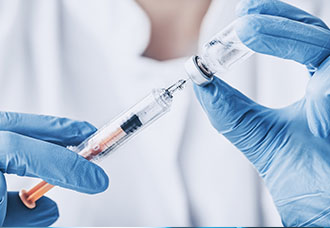In a recent podcast on Podcasts360, Adam Cheifetz, MD, a cochair of the virtual Interdisciplinary Autoimmune Summit (IAS) 2020, gave an overview of his presentation on how proactive and reactive therapeutic drug monitoring differ. During this podcast, he explains how the proactive approach can significantly benefit patients with autoimmune diseases.
Cheifetz defines therapeutic drug monitoring in the podcast as “checking drug concentrations and antibodies to make clinical decisions based on what those levels are.” There are different approaches to therapeutic drug monitoring that clinicians may use in treating patients with IBD. These approaches can be split between two different methods: reactive therapeutic drug monitoring or proactive therapeutic drug monitoring.
Reactive Therapeutic Drug Monitoring
Reactive therapeutic drug monitoring is a measurement of trough concentrations and antibody levels in the setting where the patient is losing response to a biologic agent or in the setting of primary non-response to an agent.
When looking at the drug concentration, it is important to try and determine why a patient lost response or did not respond. Cheifetz says, “This could be because it was an inadequate drug concentration and there needs to be an increased dose in the drug, a high level of antibodies and the patient may need to switch to another agent, or that the mechanism of the drug needs to be changed.”
Proactive Therapeutic Drug Monitoring
Proactive therapeutic drug monitoring is measuring trough concentration and antibody levels with the goal of dosing the biologic to achieve a threshold drug concentration at specific time points, whether that be during induction, post-induction, or during maintenance. The goal here is to improve the response and remission rates to prevent secondary loss of response by targeting therapeutic dose concentrations and preventing the development of antibodies.
Which method is best in most, if not all cases?
Cheifetz explained that he is a big believer in proactive therapeutic drug monitoring, stating in the podcast, “the best data we have regarding proactive therapeutic monitoring and improved outcomes come from studies that involve infliximab.”
According to a study done by Cheifetz and his colleagues six years ago, patients who had proactive therapeutic monitoring were compared to patients from the IBD center that went through reactive therapeutic monitoring or empiric dose escalation. The study found that the patients who had proactive therapeutic monitoring and dose optimization had a much longer duration of infliximab with less discontinuation than the standard of care. Other research showed that proactive therapeutic monitoring:
- Had less treatment failure
- Less IBD-related surgery
- Less IBD-related hospitalization
- No antibodies to infliximab
Cheifetz finds that proactive therapeutic monitoring gives the best outcomes compared to reactive therapeutic monitoring. “Patients that are dosed appropriately and dosed to a therapeutic threshold level do better than patients that have the standard of care reactive testing or dose escalation,” says Cheifetz.
The idea of proactive optimization and doing higher dosing when the patient most needs it will prevent loss of response, prevent the development of antibodies, and increase the durability of these drugs. Listen to Dr. Cheifetz’s full podcast on Optimizing Treatment With Therapeutic Monitoring here.
Interested in learning how iDose can further improve proactive TDM results for your patients with inflammatory disease? Request your demo today to get started: https://www.baysient.net/demo/.


